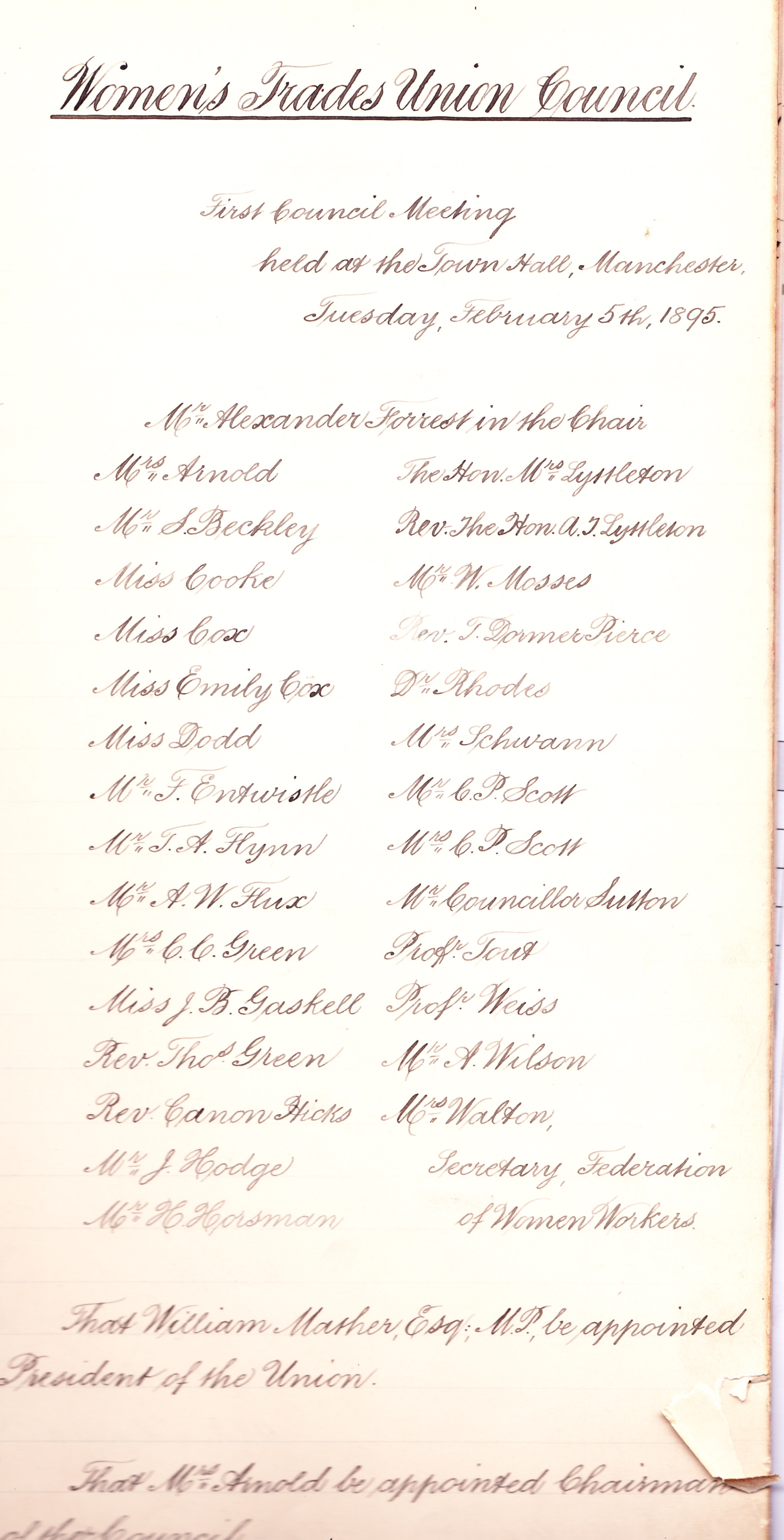Two unique volumes of the Minutes of Manchester and Salford Women’s Trades Union Council will be made fully available to the public in a project being undertaken by the Mary Quaile Club.
The two handwritten volumes – which cover the years 1895-1919 – came to light earlier this year as part of a research and drama project into the life of the Manchester Irish trade unionist Mary Quaile who worked for Women’s Trades Council from 1911-1919.
The Women’s Trades Council was set up on 1 February 1895 to assist women in Manchester to form trade unions and improve their pay and conditions. The minutes of the first two meetings were recorded in beautiful copperplate handwriting by C P Scott, editor of the “Manchester Guardian”.
The Council employed a number of organisers – including Sarah Dickenson, Frances Ashwell, Eva Gore-Booth and Mary Quaile – who worked very hard to organise women in industries such as shirt-making, printing, laundries and other low paid jobs.
The Mary Quaile Club has received donations from a number of trade unions which will enable the volumes to be transcribed and placed on a website for all to read. The two volumes will then be donated to the Working Class Movement Library.
Writer, journalist and NUJ member Bernadette Hyland is currently transcribing the Minutes. She said, “It is inspiring to be involved in uncovering this fascinating history of womens’ struggles to form trade unions and obtain equality in the workplace. We can learn from these women in 2016 and prove that trade unions are crucial to producing a society that is just.”
In 1904 the Council divided over the issue of supporting the votes for Women for Women campaign, rejecting a proposal by Christabel Pankhurst to include suffrage as one of its aims. Sarah Dickenson and Eva Gore-Booth resigned from their posts as organisers and then established the Manchester and Salford Women’s Trades and Labour Council which campaigned for trade unionism and the vote.
Both Women’s Trades Councils merged with the male Manchester Trade Union Council in 1919 to form a single organisation.







